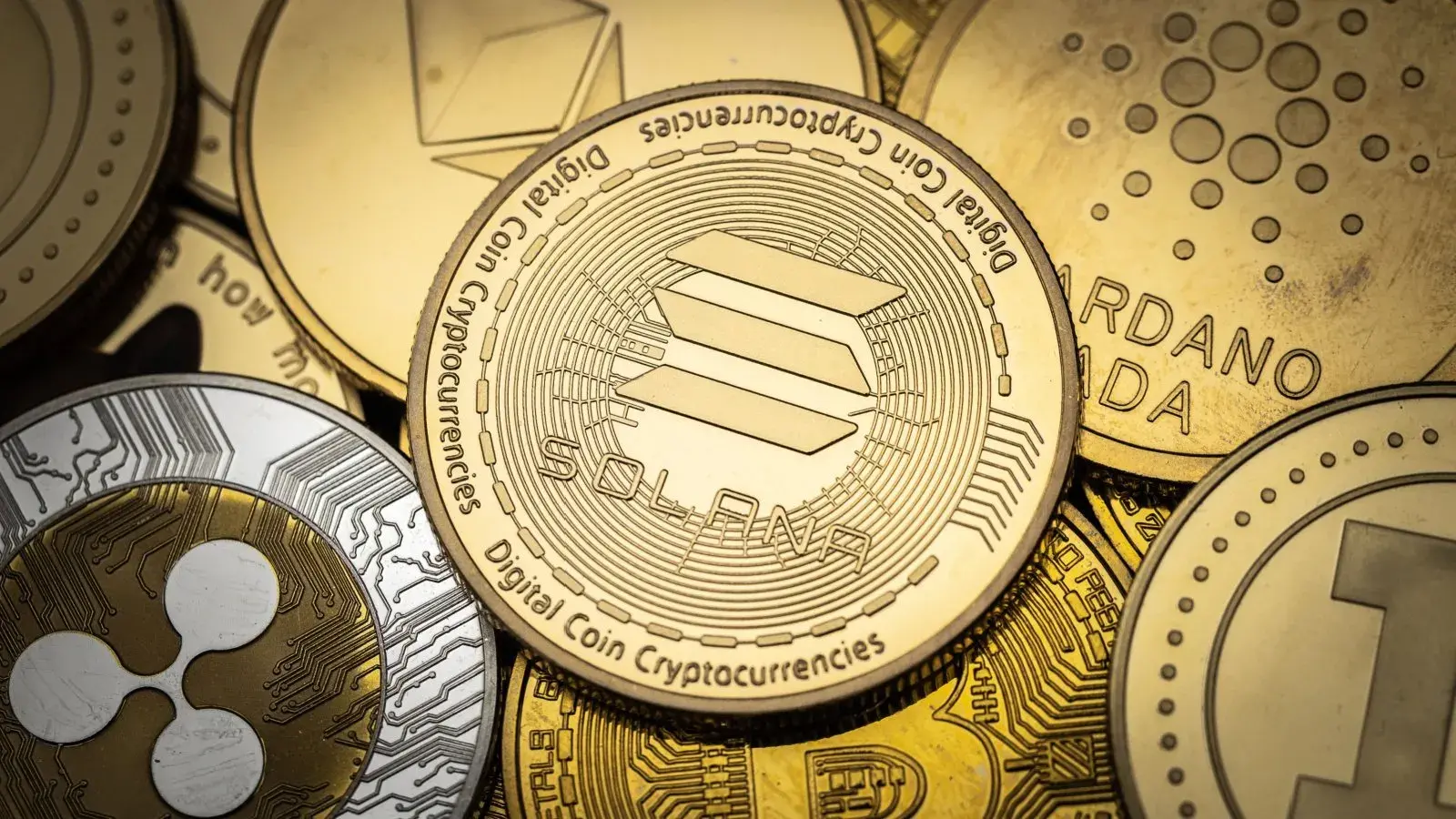吴说专访 Qiao Wang:如何投资 PUMPFUN 获得 1000 倍回报?Alliance 的超早期投资思路
在本期访谈中,Qiao Wang,Alliance 的联合创始人兼知名加密行业投资人,分享了他在 Crypto 领域的投资策略。Alliance 目前主要投资几百万美金估值的超早期项目。他详细介绍了本轮对 PUMPFUN 的投资与孵化,获得至少 1000 倍的回报;以及对 Moomshot 的投资,获得超过百倍回报。他表示,PUMPFUN 这个项目的成功,关键在于他们团队的年轻和创新能力。他表示特朗普上任后最大的变化是不会任命对加密货币有敌意的 SEC 主席与财政部长,创业情绪马上就会大大改善。
音频记录由 GPT 生成,因此可能会有一些错误。请收听完整的播客:
小宇宙:https://www.xiaoyuzhoufm.com/episodes/672f67fcf373fe5d4df0d502
YouTube:https://youtu.be/nIkPUgPd_sA
开场介绍
Colin: 这几个月因为一些和 memecoin 相关的项目兴起,中文社区里关注到你们也更多了。所以就想邀请你来做个播客,聊聊这个领域。要不你先介绍一下自己,包括成长和进入加密领域的背景?
Qiao: 我出生在济南,12 岁时移民到加拿大的,大学毕业后前往美国工作。职业生涯的前六七年,我从事的是传统金融行业的高频交易。2011 年,一位同事向我介绍了 Bitcoin,当时我没有购买,但到了 2012 年,另一位朋友建议我可以尝试投资,这让我开始深入了解 Crypto。2014 年时,我参与了 Ethereum 的 ICO,这算是我在 Crypto 领域的早期投资经历,虽然是个人参与,但与 VC 的性质有些相似。因为Vitalik是我的校友。
2017 年,我加入了 Messari,负责公司的产品线,并搭建了技术团队。在 Messari 工作了三年,2020 年我离开 Messari,决定自己创业,创办了 Alliance,一个专注于加密货币的孵化器,从那时起一直在做这件事。
Colin: 是什么契机让你决定出来创业?
Qiao: 其实在 Messari 的最后一年,我们的产品,尤其是 B2B 产品,已经取得了不错的进展。大家以为 Messari 主要是做面向消费者的研究分析工具,但其实 Messari 最出色的是 B2B 业务。那时我们已经找到了产品与市场的契合点。我很喜欢从 0 到 1 的创业阶段,但到了 1 之后,就不太喜欢把业务从 1 扩展到 10。所以从 Messari 出来后,我就一直思考怎么能不断做从 0 到 1 的事,甚至一年做四五十次。这个想法也正是我开始做 Alliance 的契机。
Alliance 的团队构成与投资策略
Colin: 最早的时候,你们是有几个合伙人一起做这个事情吗?他们的背景是怎样的?
Qiao: Alliance 的定位其实就是在项目最早期时投资,所以我们和大部分 VC 不太一样,我们非常注重深度参与,喜欢在项目早期帮助创始人找到好点子,制定 go-to-market 策略和筹资规划。Alliance 的目标就是专注于从 0 到 1 的项目,每年帮助四五十个这样的项目。
我们的合伙人其实都很 “crypto native”,在这个行业大概十年左右的经验。有一个我的合伙人叫 Imran,他经常在 Twitter 上活跃,大家可能对他有些了解,他之前是职业做 VC 的。还有一个合伙人叫 Jacob。然后另外一个合伙人 Roberto,他的背景偏 Web2,之前在 YC 工作过,也是 YC 的创始人之一,对孵化和加速器领域非常了解。
最初我们是用自己的资金,没有 LP,但随着项目变多,投的额度也增加了,后来就开始有 LP 了。目前团队规模不大,有十四五个人。
Colin: 主要工作都是集中在投资、孵化和研究上吗?
Qiao: 不完全是。其实我们有一个产品团队,有 5 个人,占公司三分之一。我们的投资和研究团队其实人不多,可能就三四个人。产品团队的工作是为我们投资的项目创始人们搭建了一个内部社交网络,让他们可以互相提问,或者讨论一些话题,比如对 VC 的看法等等,这算是一个非常有趣的内部社交平台。接下来我们可能会开发一个面向外部的社交网络,让非我们投资的项目也可以加入。
Colin: 那从开始到现在,你们总共投了多少项目?这些项目都是处于最早期阶段的吗?比如天使轮。
Qiao: 对,现在大概投了 150 到 200 个项目。四五年前,我们投的并不是最早期的,因为那时候项目不多,Crypto 领域的风险投资资金也不多,所以我们和其他 VC 的投资项目差不多。但在过去的一两年,我们基本上都专注在最早期的 Pre-seed 阶段。
Colin: 目前整个基金的规模大概有多大?
Qiao: 现在就是根据 VC 的逻辑来看的,VC 基金的规模会随着投后估值(mark-up)而变化。
Colin: 按照你说的逻辑,你们是不是主要在一两年前开始更多投天使轮或早期项目?当时是否是你们一个转折点?在那之前,你们接触特别早期的项目可能不多?
Qiao: 在那之前,大家接触的确实大都是早期项目。这几年行业发生了很多变化。两年前,项目的数量相比之前增长了一两个量级,Crypto 领域的风险投资资金也增长了一两个量级。这种情况下,不同 VC 会接触到不同阶段的项目,甚至会错过一些项目。因此我们最终决定专注在最早期,完全聚焦 Pre-seed。
Colin: 你们的投资风格是否偏向于游戏和 DeFi 领域,或者消费级的产品?
Qiao: 也不完全是。这其实和市场行情有关。比如我们也投了很多基础设施(Infra)项目,比如 Arbitrum 这些,都表现得非常好,还有其他 Layer 2 的项目。但今年基础设施领域项目很多,VC 也偏向投资基础设施,这导致 Infra 类项目的估值过高、不合理。这时我们会选择不碰这些高估值的项目。反过来,消费类项目往往估值较低,尤其是像你刚提到的 memecoins 这类,很多 VC 不敢碰。
Colin: 能不能透露一下你们的基金有几期?比如前几期的收益率情况如何?
Qiao: 我们目前是第三期基金,第一期是在 2021 年。2021 年是整个 Crypto VC 表现最差的一年,但我们那一期的表现依然在行业前 5%,可能更高。
Colin: 那么从现在来看,或者说从本轮周期来看,有什么特别的机会或契机让你们更深入地进入了 memecoin 赛道?对于现在主流的几个有名的 memecoin 产品,你们的参与程度如何?
Qiao: 其实在本轮周期中,我们投资最成功的项目就是 PUMPFUN,至少是一个千倍回报的项目。当时我们投资 PUMPFUN 时,他们其实在做别的方向。他们尝试了几次不同的方向,最后才确立了现在的 PUMPFUN 这个想法。最开始我们也没想到它会成为一个 memecoin 项目。当时我脑中的想法是它可以作为一个 token launchpad,至于具体会推出什么样的 token,我并不确定。我只是觉得这就像是 Zora(一个 NFT launchpad)那样有潜力。Zora 已经做得很好,有几年时间的稳定收入,但却没有可流通的 token,所以我当时觉得需要一个这样的项目,这就是我们决定投资的原因。
结果,PUMPFUN 最终演变成了一个专注于 memecoin 的 launchpad,这种情况在早期投资中很常见,你永远无法完全预见项目的最终形态。不过后来,PUMPFUN 确实成为了掀起整个 memecoin 赛道的项目之一。之后我们又投资了 Moonshot,这次则明确知道它会是一个 memecoin 类的产品,这在投资时已经很清晰。
投资成功案例 PUMPFUN 和 Moonshot 的背景、团队特质及成功因素
Colin: OK,当初选择投资 PUMPFUN 的原因是什么?当然你之前提到过你觉得需要一个这样的 token launchpad,那么当时对他们团队做了哪些调研?你们在投资时是不是很看重团队的风格和背景?
Qiao: 我们投资 PUMPFUN 的时候,他们其实并不是做 launchpad,最初做的是一个 NFT marketplace,但几次尝试后才转向了现在的方向。我们在选择这个团队时,主要关注的是团队,而不是具体的点子。尤其是在 Pre-seed 阶段,特别是做消费类应用时,成功率很低,团队很可能要调整方向,所以核心还是看团队的潜力。
Colin: 他们是一个华人团队吗?
Qiao: 不是,他们是一个欧洲团队。
Colin: 了解。那现在回顾他们的成功,你觉得团队有什么特质让你们看好他们?他们的成功和团队特质有直接关系吗?还是运气成分更大一些?
Qiao: 成功的项目中运气肯定有很大成分,但也有必然因素。PUMPFUN 这个项目的成功,关键在于他们团队的年轻和创新能力。这个点子其实很多人都想过,但只有 PUMPFUN 的团队能真正做出来。我认为一个原因是他们很年轻,他们的 CTO 连大学都没上,最高学历是中学,但技术非常强。他们的年轻和技术实力让他们以不同方式看待问题,对产品的直觉也很敏锐。
Colin: 确实,很多黑客型人才都没有传统的高等教育背景。
Qiao: 对,在这个阶段,背景不是主要的考量,我们更多是通过交流了解他们的思维方式,看他们对产品的理解和感觉。
Colin: 你们去年 12 月投 PUMPFUN 的时候,估值大概多少?几千万美金吗?
Qiao: 没有那么高,我们的投资一般在几百万美金,Pre-seed 阶段我们标准额度是 500 万美金。我们一般不会投估值几千万的项目。
Colin: 既然投的是早期项目,那失败率会不会很高?你估计失败率大概是多少?
Qiao: 失败率取决于如何定义失败。如果项目归零,那就算失败。我会把投资结果大致分为三种:第一类是归零;第二类是能收回本金或略有收益;第三类是 10 倍、100 倍甚至 1000 倍的回报。PUMPFUN 属于极高回报的项目,是一个例外。目前为止,我们投资的项目归零率其实很低,出乎我的意料。我的预期是三分之一归零,三分之一收回本金,三分之一达到十倍以上的回报。但实际情况是归零的项目非常少,如果团队够优秀,真的投入去做,通常会找到活下去的方法。
Colin: 看起来你们在挑选团队方面确实有独到的见解和方法。那么,除了年轻和冲劲之外,还有哪些挑选标准?
Qiao: 年轻并不是标准,我们也投过三四十岁甚至更年长的创始人。关键在于团队背景与项目的匹配度。如果做 memecoin 的 launchpad,年轻团队可能更适合,但如果是做基础设施(Infra)类项目,20 岁出头的团队可能无法胜任,需要更有经验的技术背景。因此,关键是团队背景和项目是否匹配。
Colin: 当时投 PUMPFUN 的时候是股权投资还是 token?
Qiao: 是混合的。像 PUMPFUN 这样的消费类项目不需要很多资金,我们只投了几十万美金。
Colin: 对一个估值几百万的项目来说,这也不少了。
Qiao: 是的,我们的额度不小,但对消费类项目来说,几十万美金往往已经足够。资金过多有时反而会成为阻碍。
Colin: 在 PUMPFUN 成功的过程中,你们提供了哪些帮助?
Qiao: 项目的核心想法是我们提供的,但最终执行力在团队身上。好的想法只是成功的 1%,99% 在执行。优秀的团队通常能识别出好的想法,并有效执行它。很多成功的点子其实并不新颖,关键在执行。
Colin: PUMPFUN 在成功之前有遇到很多竞争对手吗?他们是如何赢得竞争的?
Qiao: 是的,PUMPFUN 一开始就有一些竞争对手,尽管不多,但当他们的收入达到前几千万美金时,竞争对手迅速增加。成功的关键在于他们的执行力和对用户的深入了解,因为他们自己也是用户。
Colin: 他们团队有多少人?
Qiao: 现在大概十几个人,最初只有三个人。
Colin: 人均利润非常高。
Qiao: 是的,很多优秀的 Web2 初创公司也是这样。Instagram 在被 Facebook 收购时团队也只有十几个人。
Qiao 对当前 memecoin 赛道的看法和市场潜力分析
Colin: 关于 PUMPFUN 我还有两个问题。首先,你觉得他们未来的方向会是什么?会不会做一些转型或升级,比如向更偏中心化交易所的方向发展?
Qiao: 他们之后的方向我有所了解,但这个目前不能透露。
Colin: 明白,没问题。另一个问题是,你觉得他们会发行自己的代币吗?或者说会在某种程度上做这件事?
Qiao: 这个我也不能说,哈哈哈。
Colin: 好的,那我们聊聊另一个现象级的项目——Moonshot。你们是什么时候开始和他们对接的?项目方是怎么找到你们的?
Qiao: 这个项目是我们上一期的,也就是六七月份时和他们对接上的。我也不知道他们是怎么找到我们的,但他们通过我们网站申请了一下,聊了几次后,我们团队都对他们印象深刻。这支团队没有什么显赫的背景,只是两个年轻人。
Colin: 他们来自哪个国家?
Qiao: 美国的团队,其中一位创始人是杜克大学的学生,这是我对他们背景唯一的印象。其实,正常来说 VC 不会投这样的团队,但和他们聊过之后,会发现他们对产品的感觉特别好。
Qiao: Moonshot 的创意很简单,解决了一个直接的问题。比如,在 Coinbase 或 Binance 等中心化交易所,你可以将法币存进去然后购买代币,但那些代币都是已经上市的。Moonshot 则是让用户用法币直接购买 memecoin。这个点子非常简单,但只要问题存在并给出足够好的解决方案,就可以发展得很好。
Colin: 所以他们的优势是法币购买 memecoin 的功能,还是更像一个精选的 memecoin 平台?
Qiao: 精选很重要。我们当时聊到这个时,发现他们团队的独特之处在于,他们决定只推荐同一类 memecoin 中流动性最高的版本,比如同一类的 Trump memecoin,他们不会把多个版本都展示给用户,而是筛选出最优质的那个。这种简化的用户体验对散户来说特别好。
Colin: 你们投的时候他们的估值大概是多少?
Qiao: 我们不投估值几千万的项目。
Colin: 现在他们的估值是不是已经非常高了?他们有最新一轮的融资吗?
Qiao: 现在的估值大约是初始投资的 100 倍。
Colin: 看起来 PUMPFUN 和 Moonshot 是你们在本轮周期最成功的两个项目,还有其他的吗?
Qiao: 我们之前投了一个叫 Glow 的项目,属于去中心化能源(DePIN)领域,主要做碳排放抵消(carbon credits)。他们最近一轮的估值达到了 1.6 亿美元,由全球领先的清洁能源 VC USV 投资。
Colin: 你自己也参与 memecoin 投资,你觉得这个赛道的可持续性如何?因为 PUMPFUN 和 Moonshot 都专注于此,如果这个赛道不具备持续性,那这些项目也会受到影响。
Qiao: 即使我们没有投 PUMPFUN 和 Moonshot,我也会认为 memecoin 赛道具有很高的可持续性。买 memecoin 的核心目的是什么?很多人是为了“翻身”。相比之下,买 VC coin(即由 VC 支持的代币)难以获得这样的收益,很多 VC coin 一上市就开始下跌。其次,尽管某些 VC coin 在特定市场周期内会表现不错,比如 DeFi 赛道,但普通散户通常不懂这些领域,更倾向于买自己容易理解的东西。因此,这两点结合起来,memecoin 具备一定的可持续性。
Colin: 确实如此。在当前周期,VC coin 受到了 memecoin 的强烈挑战,或多或少也是由于监管的影响。由于监管限制,ICO 甚至很多 launchpad 项目也不能做了,从某种程度上,memecoin 的角色替代了散户早期参与 ICO 的机会。
Qiao: 就算 VC coin 可以做 ICO,最终结果会如何?首先,散户未必理解这些 VC coin 的项目内容;其次,投资后往往几个月才会解锁。而 memecoin 不同,投资后就立即具备流动性。因此 ICO 的存在并不会对 memecoin 产生冲击,反而对 VC 影响更大,因为很多项目会发现从 VC 那里融资变得更难,于是选择直接做 ICO。
对美国监管政策的预期变化及其对 Crypto 行业的影响
Colin: 不过我觉得期待特朗普上台后快速放松这方面的政策,可能不是很现实。他在选举前的承诺和选举后的行动可能有很大差别。不过你身在美国,还是希望听听你怎么看,特朗普当选后对 Crypto 行业会带来哪些比较确定性的变化?
Qiao: 最明显的变化应该是特朗普不会像之前那样让一个像 Gary Gensler 这样的人掌管 SEC(美国证券交易委员会)。这非常关键,不仅对 SEC 有影响,还对财政部(Treasury)也很重要,这两个部门都非常关键。
Colin: 是的,财政部负责稳定币,还有一些相关领域。
Qiao: 对,财政部不但管稳定币,还涉及隐私方面的事,甚至连自托管(self-custody)也归他们管理。财政部的权力其实比 SEC 还要大得多,只不过过去四年里,他们并没有特别针对 Crypto。如果下一任财政部长态度不友好,可能会对行业造成非常负面的影响。
Colin: 我记得特朗普上任时,财政部的一位货币部门负责人是非常支持 Crypto 的。
Qiao: 是的。所以最直接的变化就是,如果 SEC 和财政部不再打压 Crypto,那么美国甚至全球的创业者都会更有意愿来做 Crypto 项目。过去四年里,SEC 主要打击的是一些正当项目,而不是那些确实违规的项目,FTX 都没怎么被管控。
Qiao: 所以最直接的影响就是创业情绪的提升,这对 Crypto 非常有利。这一变化几乎是立刻可以见效的,不需要新法律或监管调整,只要改变态度,创业情绪马上就能改善。除了情绪外,你提到的新法律,比如稳定币的法律或者 ICO 的法律,这些确实需要时间来推动。不过现在国会两院都是共和党主导,法律通过的可能性更大,但仍需要时间。
Colin: 在你们投资 PUMPFUN 和 Moonshot 取得成功后,找你们的项目有没有明显增多?
Qiao: 确实多了一些。其实即使在 PUMPFUN 和 Moonshot 之前,美国和欧洲的大部分创业者都知道我们。就像你刚刚提到的,中国的社区可能最近才开始真正了解我们。事实上,我们最近一期项目中,中国团队的比例相当高,约有三四成是来自中国的项目。中国团队在西方 VC 那里融资不易,主要因为文化和语言障碍,但对我来说这些都不是问题。
未来投资方向和对中国创业团队的建议
Colin: 你们在最早期的孵化和投资方面已有四年经验了,你刚才提到大约 30% 到 40% 的投资项目是中国团队。你觉得中国的创业者和美国、欧洲的创业者有什么不同之处吗?
Qiao: 本质上其实没什么区别,主要的差异还是语言和文化方面,比如在与西方社区或 VC 沟通时会有一些障碍。我发现很多中国的项目都很看重获得西方 VC 的支持和背书。我一直告诉他们,这一点其实不重要,背书的价值不大,关键是做好产品,这样自然会吸引到好的 VC 来找你。当然,社区还是有一定的影响,这是文化上的差异。
Colin: 确实,做出有真实用户和收入的产品并不容易。像 PUMPFUN 这样的成功项目很少,可能几千个、上万个项目里才会有一个。你觉得这种产品形态是可以预见的,还是需要运气和市场竞争来推动?
Qiao: 运气成分非常大。PUMPFUN 就是一个例子,即便是他们刚开始做这个项目时,我们给了这个想法,但也没有预料到能做得这么大,偶然性很高,几乎超过 90%。
对本周期 memecoin 火热的看法
Colin: 你认为这个周期的热点和上个周期相比有什么变化吗?2019 年左右,DeFi、NFT、游戏等领域都非常火爆,但这轮周期感觉似乎只有 memecoin 比较热?
Qiao: 这轮周期确实有些不同,主要的热门领域是 memecoin 和 stablecoin。不过,stablecoin 类项目通常不会发代币。
Colin: 是的,像 Circle 或 Tether 支持的项目往往更稳固。你们会投新的稳定币项目吗?
Qiao: 我们不会投和 Circle 或 Tether 竞争的稳定币项目,而是会投一些应用层或基础设施(Infra)相关的项目,比如跨境支付。Infra 层面我们投过一个被收购的 bridge 项目,它为开发者提供 API,可以看作是一种稳定币的基础设施。
Colin: 你怎么看待 memecoin 多集中在 Solana 上的现象?以及 Solana 和 Ethereum 之间的竞争?
Qiao: 为什么 memecoin 集中在 Solana 上,我也不完全清楚,但猜测和早期的影响者 Ansem 有关系。他当时带来了大量用户到 Solana,这些用户的加入可能推动了 memecoin 的增长。
Colin: 确实,喊单对 memecoin 很重要,像 Murad 最近的喊单就给 memecoin 带来了新的推动力。他的思路非常清晰,前几天我和他做了一期播客,确实很特别。
Qiao: 是的,Murad 确实很厉害。尽管很多传统 VC 对他评价不高,但听他说话你会发现他思路非常清晰。
Colin: 确实,他的逻辑很简洁。类似 Ansem 这样的人也很多人不认可,但他其实也很有思路,技术背景也非常强大。
筛选团队的标准、流程及后续支持
Colin: 回到更早期的问题上,你们接收了那么多项目申请,筛选的标准和流程是怎样的?最初是怎么筛选出感兴趣的项目的?
Qiao: 筛选工作主要是我来负责,我每年会看四五千个项目,大约每天看十几个。我没有特别的标准,主要是凭直觉。通过他们的申请材料可以感受到思路清晰度、背景和项目的吸引力。
Colin: 然后如果通过初筛,你们会怎么进一步接触这些团队?
Qiao: 如果初筛通过,我会安排我们的合伙人和他们聊。很多优秀项目其实 5 分钟的对话就能判断好坏,虽然说是聊 20 分钟,但其实几分钟就够了。
Colin: 你们在投资后会提供哪些帮助?
Qiao: 我们帮助的主要方面有三个:第一,协助他们进入市场,找到用户,并分析用户反馈;第二,如果项目的初始想法不成熟,我们会和他们一起探讨新想法;第三,帮助他们融资。
对 VC 代币近期表现、TON 和特朗普当选的影响的看法
Colin: 对于近期 VC 支持的代币表现较差,比如一些项目在 Binance 上跌幅很大,你怎么看?
Qiao: 现象很简单,就是项目代币过多,资金不足。VC coin 的 FDV(全稀释估值)太高,没人接盘,导致价格下跌。相比之下,memecoin 的初始 FDV 通常较低,有自然增长的空间。中心化交易所对这一现象也有责任,因为他们上了一些并没有用户基础的项目,最终伤害了散户用户。
Colin: 你怎么看待前一阵子火热的 TON 区块链游戏?你们有考虑过投资类似项目吗?
Qiao: 一直在找机会投资 TON 区块链项目,但目前还没找到特别好的团队。TON 作为唯一有大型社交媒体支持的 Web3 项目,确实很独特,不过也面临一些挑战,比如用户质量和代币表现的问题。
Colin: 你觉得在特朗普的影响下,这波 Crypto 牛市会持续多久?
Qiao: 我不确定能持续多久,但未来三到六个月前景非常好。不过主要还取决于宏观经济政策,特朗普的 Crypto 政策是一方面,但宏观经济因素更为重要。
Colin: 好的,今天聊了很多,非常感谢你的时间,下次有机会再深入探讨。
Qiao: 好的,谢谢你。









